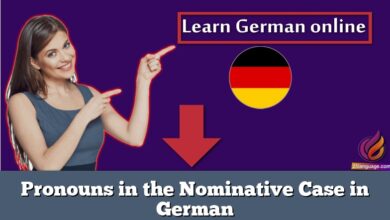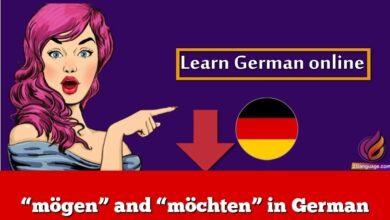Word Order in Questions

Today we are going to introduce you a very important grammar in the German language about Word Order in Questions.
Basic or normal word order in simple German sentences is the same as in English—subject then verb then verb object:
Ich habe Käse ~ I (subject) have (verb) cheese (verb object = what you “have”)
Unlike with English sentence structure, a question sentence in German is formed by reversing subject and verb:
Hast du Käse? ~ Have (verb) you (subject) cheese?
consider the statement: Er studiert Biologie (‘He studies biology’). A question statement might be: Was studiert er?
(‘What studies he?’; although in English, we would usually say: “What is he studying?”). The normal word order of
subject (er or “he”) then verb (studiert or “study”) is reversed and, in this case, an interrogative (was or “what”)
added onto the front replacing the unknown (to the speaker) object (here, “biology”). Additional examples of questions formed from basic statements illustrate inverted word order:
Wie geht es dir? from Es geht mir gut. (‘It goes well with me.’)
Wohin geht sie? from Sie geht einkaufen. (‘She goes shopping.’)
Was ist fast leer? from Der Kühlschrank ist fast leer. (‘The fridge is almost empty.’)
Was brauche ich? from Ich brauche Wurst und Käse. (‘I need sausage and cheese.’)
Versteht sie mich? from Sie versteht mich. (‘She understands me.’)
Die Studenten
Markus ist Student. Er studiert Biologie. Er begegnet Katrin. Sie studiert Mathematik.
Markus und Katrin sind Freunde.
• Markus: Hallo, Katrin! Wohin gehst du?
• Katrin: Ich gehe einkaufen. Der Kühlschrank ist fast leer. Ich brauche Wurst und Käse.
Und du? Wohin gehst du?
• Markus: Zur Uni. Ich habe viel zu tun.
• Katrin: Gut! Dann bis bald. Tschüss.
• Markus: Tschüss, Katrin.
Here again, two friends (college students) meet casually and discuss briefly what each is doing.




























